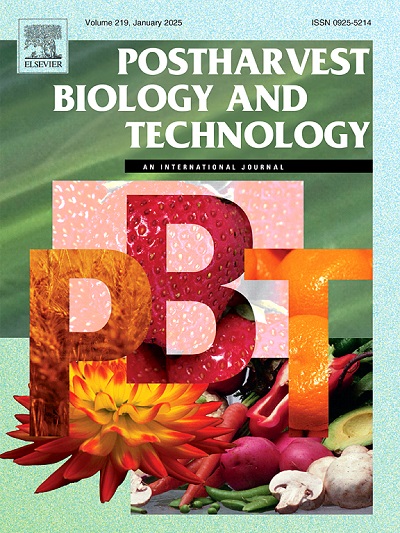Understanding citrus aroma: Changes induced by postharvest treatments of fresh fruit
IF 6.4
1区 农林科学
Q1 AGRONOMY
引用次数: 0
Abstract
Citrus fruit are among the most economically important crops globally, with substantial production and trade volumes. Due to their high yield and concentrated harvest period, a portion of the fruit undergo postharvest treatments to improve their shelf life. However, during the treatments, the reduction in the content of unique aroma compounds and the formation of off-flavors may decrease their commercial value. Given that aroma quality is a decisive factor in determining the marketability of citrus fruit, implementing effective postharvest treatments is essential for maintaining fruit quality and enhancing their commercial value. This study systematically reviews the effects of different postharvest treatments aimed at extending the shelf life of citrus, including cold storage, coating and packaging, and pre-storage treatments (heat treatment, irradiation treatment, electrical treatment, ultrasound treatment, and ethylene/ethephon treatment) on the aroma quality of citrus fruit. By exploring the alterations in the aroma profile induced by these technologies, this review provides a theoretical framework for optimizing postharvest aroma preservation, supporting both quality maintenance and product value enhancement in the citrus industry.
求助全文
约1分钟内获得全文
求助全文
来源期刊

Postharvest Biology and Technology
农林科学-农艺学
CiteScore
12.00
自引率
11.40%
发文量
309
审稿时长
38 days
期刊介绍:
The journal is devoted exclusively to the publication of original papers, review articles and frontiers articles on biological and technological postharvest research. This includes the areas of postharvest storage, treatments and underpinning mechanisms, quality evaluation, packaging, handling and distribution of fresh horticultural crops including fruit, vegetables, flowers and nuts, but excluding grains, seeds and forages.
Papers reporting novel insights from fundamental and interdisciplinary research will be particularly encouraged. These disciplines include systems biology, bioinformatics, entomology, plant physiology, plant pathology, (bio)chemistry, engineering, modelling, and technologies for nondestructive testing.
Manuscripts on fresh food crops that will be further processed after postharvest storage, or on food processes beyond refrigeration, packaging and minimal processing will not be considered.
 求助内容:
求助内容: 应助结果提醒方式:
应助结果提醒方式:


